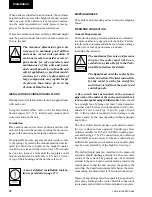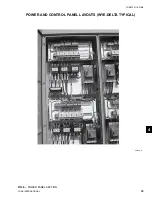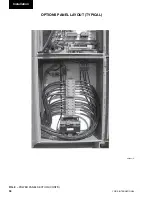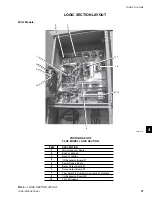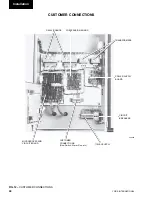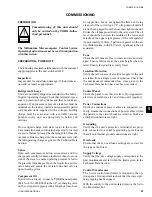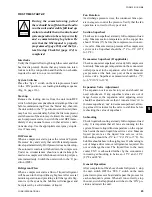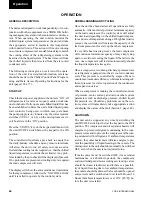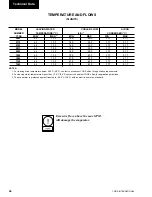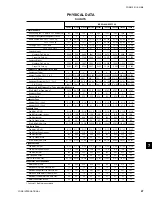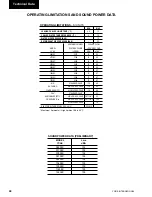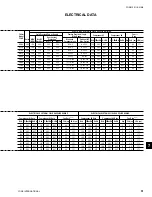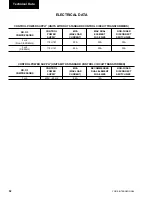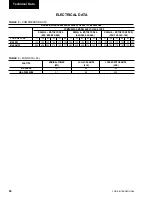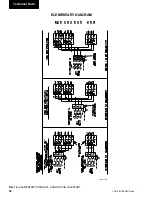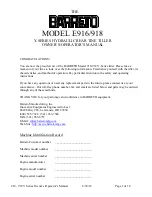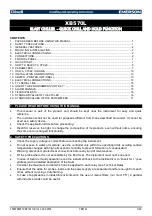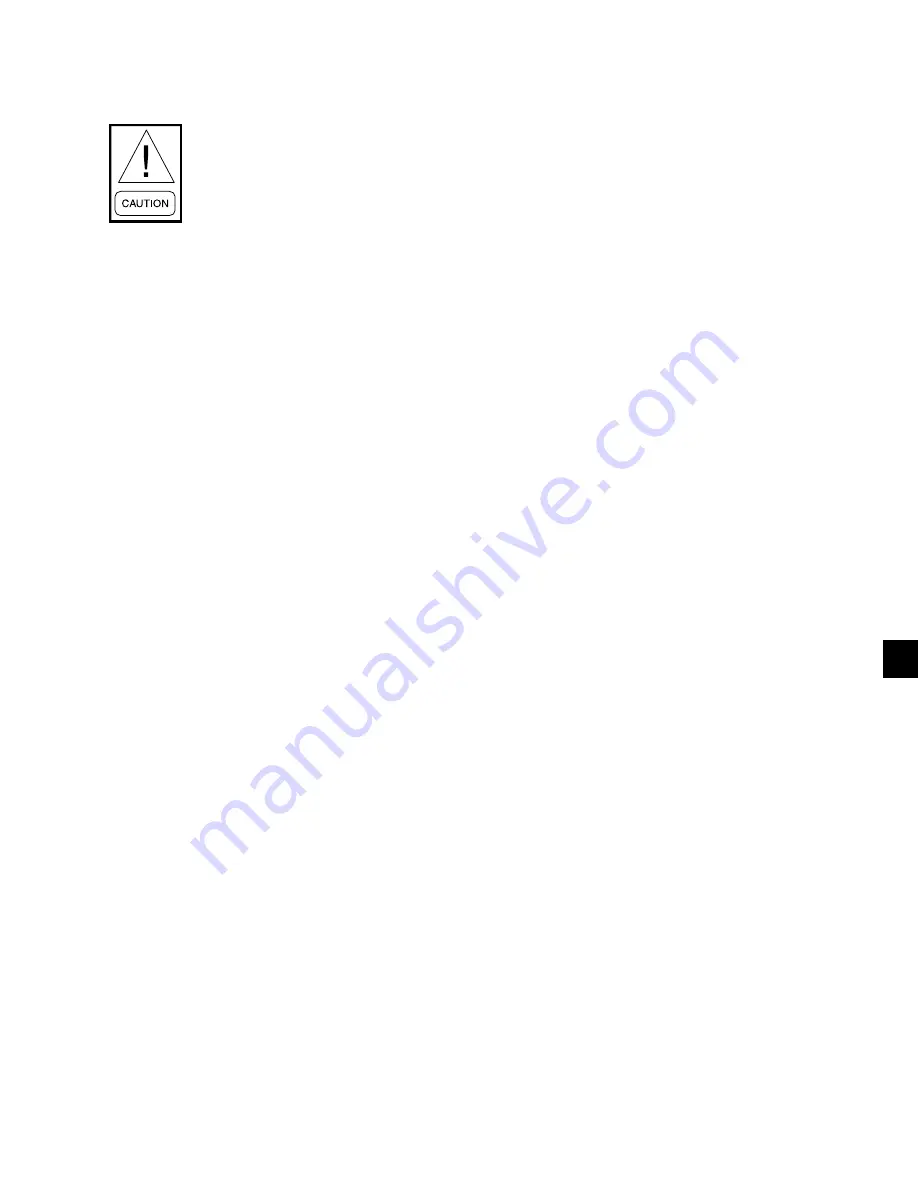
43
YORK INTERNATIONAL
FORM 201.18-NM4
FIRST TIME START-UP
During the commissioning period
there should be sufficient heat load to
run the unit under stable full load op-
eration to enable the unit controls, and
system operation to be set up correctly
and a commissioning log taken. Be
sure that the Micropanel is properly
programmed (page 168) and the Sys-
tem Startup Checklist (page 124) is
completed.
Interlocks
Verify that liquid is flowing through the cooler and that
heat load is present. Ensure that any remote run inter-
locks are in the run position and that the run schedule
requires the unit to run or is overridden.
System Switches
Place the ‘Sys 1’ switch on the microprocessor board
to the ‘ON’ position – see loading/unloading sequence
(Fig. 63, page 136).
Start-up
Remove the locking device from the unit Auto/OFF
switch which prevents unauthorized starting of the unit
before commissioning. Press the ‘Status’ key, then turn
the unit switch to the “1” position to start the unit (there
may be a few seconds delay before the first compressor
starts because of the anti-recycle timer). Be ready when
each compressor starts, to switch the unit OFF imme-
diately if any unusual noises or other adverse condi-
tions develop. Use the appropriate emergency stop de-
vice if necessary.
Oil Pressure
When a compressor starts, press the relevant ‘System
Pressures’ key and verify that oil differential pressure
develops immediately. If oil pressure does not develop,
the automatic controls will shut down the compressor.
Under no circumstances should a restart attempt be
made on a compressor which does not develop oil pres-
sure immediately. Switch the unit switch to the ‘0’ po-
sition (OFF).
Refrigerant Flow
When a compressor starts a flow of liquid refrigerant
will be seen in the liquid line sight glass. After several
minutes operation and providing a full charge of refrig-
erant is in the system, the bubbles will disappear and
be replaced by a solid column of liquid.
Fan Rotation
As discharge pressure rises, the condenser fans oper-
ate in stages to control the pressure. Verify that the fan
operation is correct for the type of unit.
Suction Superheat
Check suction superheat at steady full compressor load
only. Measure suction temperature on the copper line
about 150 mm (6") before the compressor suction ser-
vice valve. Measure suction pressure at the compressor
service valve. Superheat should be -7°C to -6°C (10°F
to 12°F).
Economizer Superheat (If applicable)
Check economizer superheat at steady full compressor
load only. Measure gas temperature on the economizer
outlet pipe next to the expansion valve bulb. Measure
gas pressure at the back seat port of the economizer
service valve. Superheat as measured should be -7°C
to -6°C (10°F to 12°F).
Expansion Valve Adjustment
The expansion valves are factory set and should not
need adjustment. If any superheat values are out of
range, however, the expansion valve adjusting screw
should be adjusted no more than 1 turn at a time (‘in’ to
increase superheat, ‘out’ to decrease superheat), allow-
ing at least 10 minutes for the valve to stabilize before
rechecking the value of superheat.
Subcooling
Check liquid subcooling at steady full compressor load
only. It is important that all fans are running for the
system. Measure liquid line temperature on the copper
line beside the main liquid line service valve. Measure
liquid pressure at the liquid line service valve.
Subcooling should be -8°C to -7°C (12°F to 15°F). No
bubbles should show in the sight glass. If subcooling is
out of range add or remove refrigerant as required. Do
not overcharge the unit. The liquid flow to the main
cooler TXV is subcooled further by the economizer,
increasing subcooling to between -15°C and -12°C
(22°F and 28°F).
General Operation
After completion of the above checks for System 1, stop
the unit, switch OFF the ‘SYS 1’ switch on the main
panel microprocessor board and repeat the process for
each subsequent system. When all run correctly, stop
the unit, switch all applicable switches to the ‘ON’ po-
sition and restart the unit.
5
Summary of Contents for Millennium YCAS 0693
Page 49: ...49 YORK INTERNATIONAL FORM 201 18 NM4 7 This page intentionally left blank...
Page 65: ...65 YORK INTERNATIONAL FORM 201 18 NM4 LD04179 7...
Page 79: ...79 YORK INTERNATIONAL FORM 201 18 NM4 This page intentionally left blank 7...
Page 83: ...83 YORK INTERNATIONAL FORM 201 18 NM4 This page intentionally left blank 7...
Page 87: ...87 YORK INTERNATIONAL FORM 201 18 NM4 LD04268 7...


